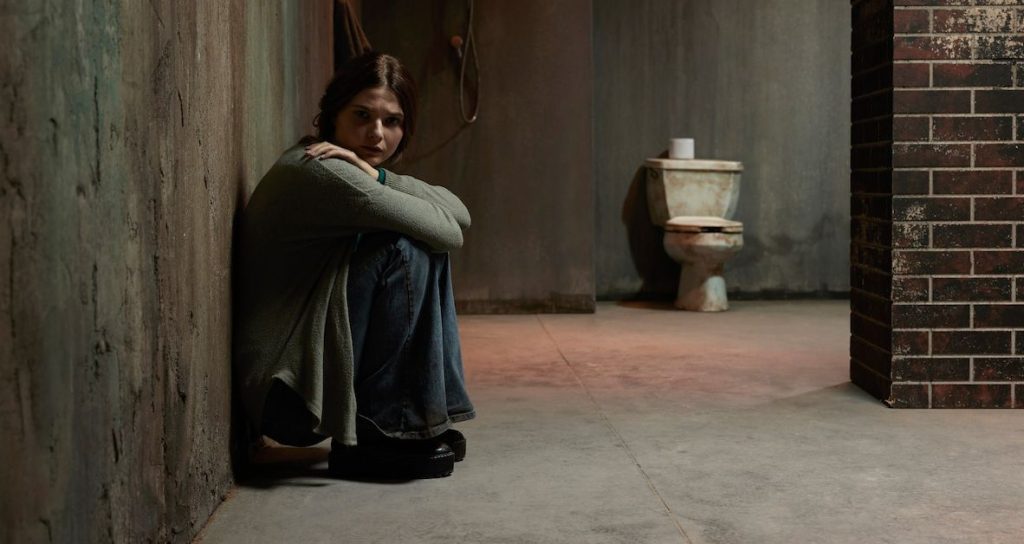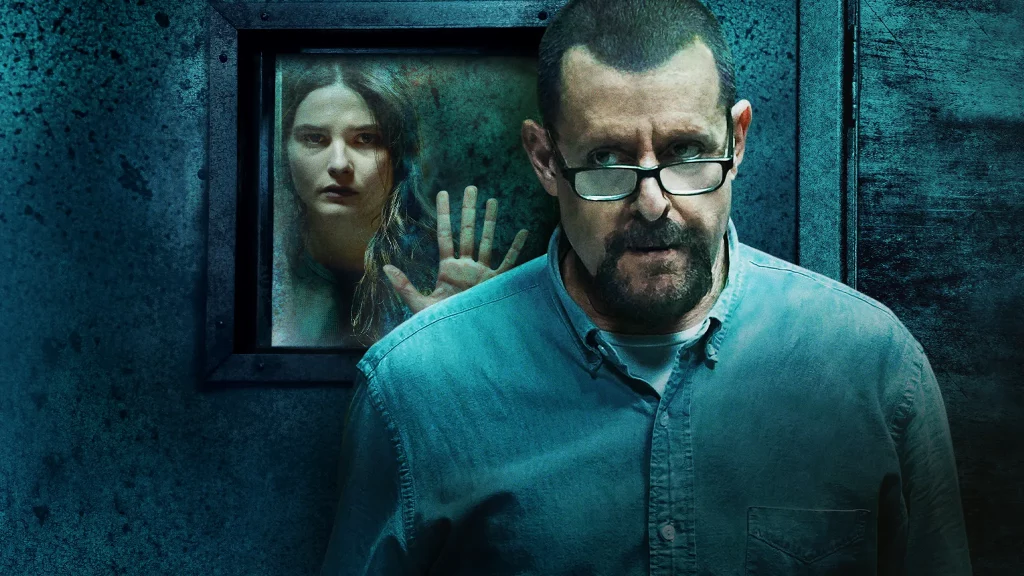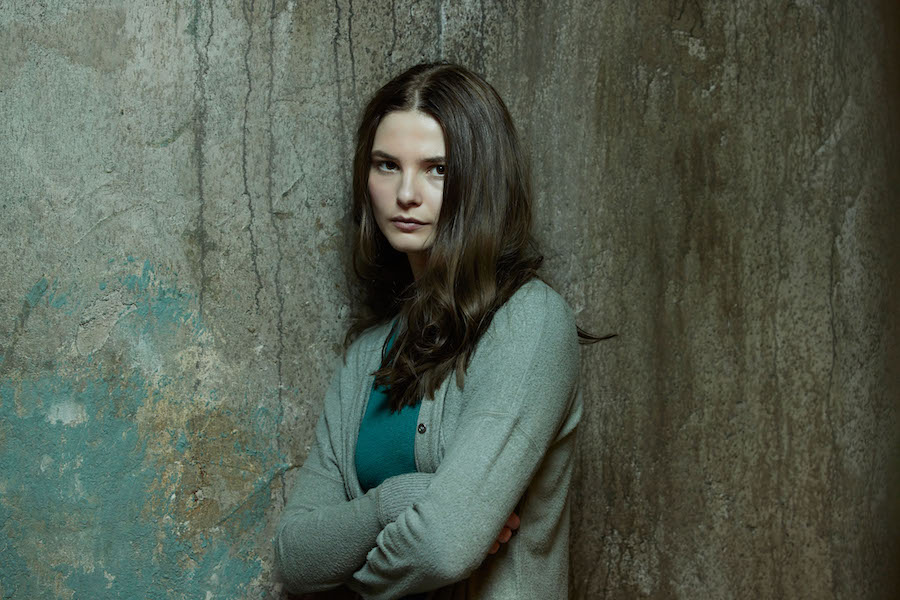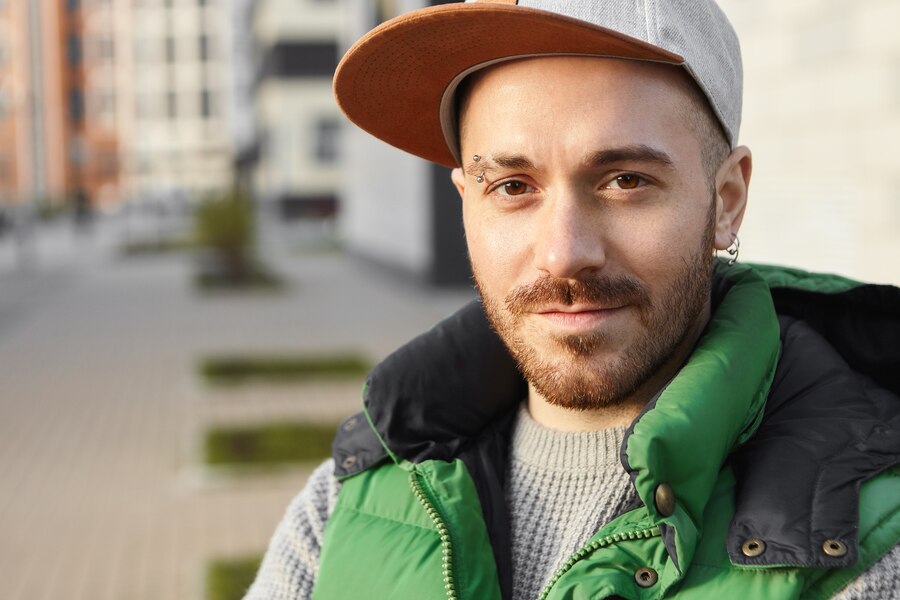When a woman by the name of Elisabeth Fritzl claimed to have spent 24 years being held captive by her father, Josef Fritzl, Austrian police officials took notice of the situation.
When she was imprisoned in a secret location in the family home’s basement, Josef would frequently assault, abuse her sexually, and even rape her.
As a result, Elisabeth was forced to give birth to seven children, three of whom stayed hostage with their mother, three of whom were raised by Fritzl and his wife, Rosemarie, and one of whom passed away shortly after birth.
Josef was detained by police officers on the basis of Elisabeth’s allegation of wrongful detention, rape, and other offenses against the law. He was found guilty on all counts and given a life sentence by the court in March 2009.
The complete story of Elisabeth Fritzl, “The Girl in the Basement”
Josef Fritzl and Rosemarie Fritzl welcomed a daughter, Elisabeth, into the world in 1966 in Austria. There were 3 brothers and 3 sisters among her 6 siblings.
When she was only 11 years old in 1977, her father used to mistreat her. Elisabeth began training to work as a waitress at the age of 15 after completing her education.
Then, in 1983, she fled her house and went into hiding with a friend in Vienna. She was found by police within 20 days, and they gave her back to her parents. Later, she returned to her waitressing class and finished it, which helped her find employment in the surrounding city.
Elisabeth Fritzl’s Fall into the Basement
To help him repair a door in the basement of their Austrian home, Josef Fritzl contacted Elisabeth in the year 1984. Unaware of his motives or how her life would change as a result of this incident, Elisabeth descended the stairs to assist her father.
A little piece of cloth covered in ether was placed over her mouth and nose as she was ready to leave the area, stopping her.

Elisabeth had no idea that she was in fact assisting her own father’s scheme to imprison her as a sex slave. Long before receiving official approval from the local authorities in the late 1970s, Josef Fritzl had been planning for years to construct an underground jail cell.
Getting approval was not difficult for Josef because, during the cold war, it was rather common to construct nuclear bunkers in the basement of a home.
In actuality, Josef received a grant from the local council for the construction of the building in the amount of 2000 pounds. Before getting to the cellar where he intended to hold Elisabeth prisoner, there were a number of doors that needed to be opened.
Read More: Dirty John Season 3 Release: This Show Will Not Return For Third Round!
The Basement: 24 Years of Life
For the next 24 years, Elisabeth had to endure hell since the horrors that were inflicted upon her were unending. Sometimes she was made to use her bare hands to catch rats. She found summer to be the worst season of the year because of the terrible sweat, which she later described in her works.
While life was advancing for the rest of the world, it was standing still and motionless for Elisabeth. Her father had initially restrained her with an iron chain such that she could hardly move more than a meter on either side of the bed. He then fastened the chain around her waist, allowing her more mobility.
After a few months, he removed the chain since it was getting in the way of his intercourse. She endured years of Josef’s sexual torture, including many daily rapes, before she was finally freed in April 2008.
In those 25 years, he sexually assaulted her at least 3000 times, leading to the birth of 7 children. As they grew up, Elisabeth’s children had to see her mistreat them.
As planned, three of her children joined her in the basement while the other three inexplicably showed up close to Josef Fritzl and his wife Rosemarie’s door.
Her Father’s Atrocities Have Been Released
When Elisabeth was ill yet unable to care for the children, Fritzl would dictate letters to her letting her know. To return them to his wife Rosemarie, he would then travel great distances. Despite the fact that Elisabeth was utterly broken within, she sought to find solace in the fact that at least her three children are living happier lives than those who were suffering downstairs.
Josef used to continuously kick and abuse her. He used to make Elisabeth act out scenes from brutal pornographic movies. Elisabeth suffered psychological harm in addition to physical wounds as a result of this. The first five years had been spent by her by herself.
In 1996, shortly after giving birth in the cellar, one of her children passed away too soon. When he was just three days old, the infant, who was having breathing problems, passed away in her arms. Later, Josef admitted that he had incinerated the child’s body.
Elisabeth’s conduct was unpredictable, therefore Fritzl locked her up to protect her from the outside world, he claimed in an attempt to explain himself during the trial. Josef’s attorney made an effort to paint him as a loving and devout parent who put effort and resources into supporting both of his families.
Read More: Season 3 of Never Have I Ever Shows Why This Is Television’s Best Teen Comedy
She found purpose in life after having children.

It was truly a horror for her when the infants began to arrive. After spending many years alone, she attempted suicide but realized that her children gave her a reason to live.
Without seeking medical attention for nearly 12 years, she gave birth to all of her children. A book on birthing, some cleaning supplies, and some disinfectant were given to her by Josef.
Elisabeth and her children have been threatened with death by Fritzl if they attempt to flee. “He told them he had created a mechanism so that the doors would shock them with electricity if they tried to open them and that poison would be released into the cellar if they tried to escape, killing them all instantaneously,” the indictment order that was made public by the court read.
Elisabeth would be abandoned in total darkness by Josef Fritzl the cut off the power to the basement for days at a time.
Elisabeth’s strategy for escaping the Dark Basement Life
When Kerstin, her daughter who was 19 years old, required emergency hospitalization, her traumatic story came to an end. She was driven to the hospital by Joseph Fritzl, who had never before shown mercy.
Looking at Kerstin’s condition, the doctors who were treating her developed a strong sense of suspicion. Later thereafter, medical professionals informed the police about the entire episode.
The mother was urged to come forward with the required information if they wanted to save her life in a television plea that was repeatedly broadcast.
She watched the appeals on the television in their basement with her two boys. Then she asked her father to let her leave. Growing older, Josef Fritzl noticed his abilities dwindling and was having trouble supporting both families.
In order to get rid of everything without raising too many eyebrows, he began to formulate a strategy. He finally gave in after 24 years for the first time. To the hospital personnel, he shared some tales. Police officers and medical professionals, however, did not accept his account.
Due to her blatant neglect of her daughter, police officials frightened Elisabeth while she was hospitalized and had her transferred to a room away from her father.
After that, Elisabeth informed the police that she would tell them everything if she could avoid seeing her father ever again.
Read More: Kelly Clarkson’s Hip-Thrusting Skills Are on Point in BTS Video from Talk Show
Girl in the Basement Story: A Film about Elisabeth Fritzl

Critics were drawn to the true story of Elisabeth Fritzl in the crime movie “Girl in the Basement,” which is based on her life.
Sara, a teenage girl who recently turned 18, is the subject of the movie and is ecstatic to leave her parents’ home. Her father, who won’t let her leave, kidnaps her, imprisons her in his basement, and begins assaulting her there.
Who knows where Elisabeth Fritzl is right now?
After being held captive by her father for 24 years, Elisabeth finally saw the sun when she went to the hospital to see a kid who required immediate care. One of the medical staff members became suspicious when she was promptly escorted back to the basement by her father, who then called the police.
She was saved by police officers, who then transported her right away to the state care facility. In a small village in Northern Austria, Elisabeth received therapy. Because of the accumulated trauma she has endured over the years, according to psychologists who have examined her, she should get lifetime counseling.
So that there is little danger of being reminded of the past, Elisabeth is reportedly now living in a cheerful home with her children.
The most recent image of Elisabeth was taken more than 35 years ago, when she was just 16 years old, despite the fact that she is now in her forties. In an effort to restore normalcy to her life following the atrocities perpetrated against her, officials have done their best to conceal her identity from the public’s gaze.
Then, Elisabeth had a new name and identity. In order to conceal her location, she currently resides in the Austrian village known only as “Village X.”
The age range of Elisabeth’s kids, who live with her, is currently 19 to 33. Given their history of severe anxiety and propensity for panic episodes, some of her children had trouble recovering. For them to return to their regular way of life, a tight eating regimen, consistent exercise, and mood-altering medications were maintained.
They sleep with the doors of their bedrooms permanently open. The two-story home is monitored by CCTV cameras, and security officers are constantly on the lookout and patrolling it. The public domain contains relatively little information regarding her life after jail.
According to prestigious news outlet “The Independent,” Elisabeth and her mother Rosemarie initially had a tense relationship but later it became cordial and they grew closer.

Irving is the Chief Editor at the Landscape Insight. He lives just outside of New York. His writings have also been featured in some very famous magazines. When he isn’t reading the source material for a piece or decompressing with a comfort horror movie, Irving is usually somewhere in his car. You can reach Irving at – [email protected] or on Our website Contact Us Page.








